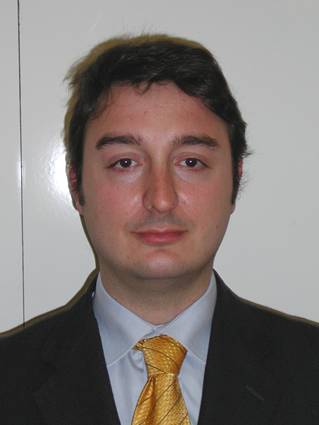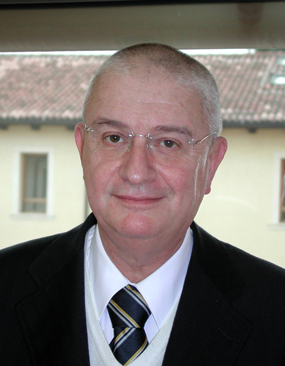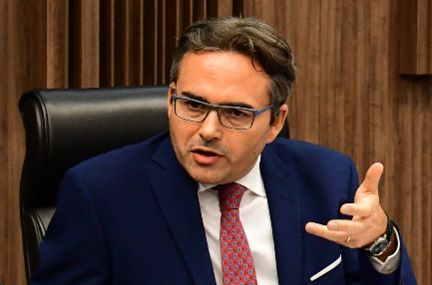Studying at the University of Verona
Here you can find information on the organisational aspects of the Programme, lecture timetables, learning activities and useful contact details for your time at the University, from enrolment to graduation.
Academic calendar
The academic calendar shows the deadlines and scheduled events that are relevant to students, teaching and technical-administrative staff of the University. Public holidays and University closures are also indicated. The academic year normally begins on 1 October each year and ends on 30 September of the following year.
Course calendar
The Academic Calendar sets out the degree programme lecture and exam timetables, as well as the relevant university closure dates..
| Period | From | To |
|---|---|---|
| 1° periodo di lezioni | Oct 3, 2011 | Dec 16, 2011 |
| Periodo riservato ad eventuali recuperi di lezioni - dicembre 2011 | Dec 19, 2011 | Dec 20, 2011 |
| 2° periodo di lezioni - febbraio/aprile 2012 | Feb 13, 2012 | Apr 2, 2012 |
| 2° periodo di lezioni - aprile/maggio 2012 | Apr 11, 2012 | May 8, 2012 |
| Periodo riservato ad eventuali recuperi di lezioni - maggio 2012 | May 9, 2012 | May 12, 2012 |
| Session | From | To |
|---|---|---|
| Sessione straordinaria (solo studenti fuori corso) - dicembre 2011 | Dec 21, 2011 | Dec 23, 2011 |
| Sessione invernale - 1° appello | Jan 9, 2012 | Jan 14, 2012 |
| Sessione invernale - 2° appello | Feb 6, 2012 | Feb 11, 2012 |
| Sessione straordinaria (solo studenti fuori corso) - aprile 2012 | Apr 3, 2012 | Apr 5, 2012 |
| Sessione estiva - 1° appello | May 14, 2012 | May 19, 2012 |
| Sessione estiva - 2° appello | Jun 11, 2012 | Jun 16, 2012 |
| Sessione estiva - 3° appello | Jul 9, 2012 | Jul 14, 2012 |
| Sessione autunnale - 1° appello | Aug 29, 2012 | Sep 4, 2012 |
| Sessione autunnale - 2° appello | Sep 24, 2012 | Sep 29, 2012 |
| Session | From | To |
|---|---|---|
| (Termine presentazione tesi di laurea - sessione ottobre 2011) | Sep 30, 2011 | Sep 30, 2011 |
| Sessione autunnale - ottobre 2011 | Oct 24, 2011 | Oct 25, 2011 |
| (Termine presentazione tesi di laurea - sessione febbraio 2012) | Jan 11, 2012 | Jan 11, 2011 |
| Sessione invernale - febbraio 2012 | Feb 2, 2012 | Feb 3, 2012 |
| (Termine presentazione tesi di laurea - sessione marzo 2012) | Mar 5, 2012 | Mar 5, 2012 |
| Sessione invernale - marzo 2012 | Mar 28, 2012 | Mar 30, 2012 |
| (Termine presentazione tesi di laurea - sessione giugno 2012) | Jun 4, 2012 | Jun 4, 2012 |
| Sessione estiva - giugno 2012 | Jun 28, 2012 | Jun 29, 2012 |
| (Termine presentazione tesi di laurea - sessione settembre 2012) | Aug 29, 2012 | Aug 29, 2012 |
| Sessione autunnale - settembre 2012 | Sep 19, 2012 | Sep 20, 2012 |
| Period | From | To |
|---|---|---|
| Festa di Ognissanti | Nov 1, 2011 | Nov 1, 2011 |
| Festa dell'Immacolata | Dec 8, 2011 | Dec 8, 2011 |
| Vacanze Natalizie | Dec 24, 2011 | Jan 6, 2012 |
| Vacanze Pasquali | Apr 6, 2012 | Apr 10, 2012 |
| Festa della Liberazione | Apr 25, 2012 | Apr 25, 2012 |
| Festa dei Lavoratori | May 1, 2012 | May 1, 2012 |
| Ricorrenza del Santo Patrono | May 21, 2012 | May 21, 2012 |
| Festa della Repubblica | Jun 2, 2012 | Jun 2, 2012 |
| Vacanze estive | Aug 8, 2012 | Aug 15, 2012 |
Exam calendar
Exam dates and rounds are managed by the relevant Law Teaching and Student Services Unit.
To view all the exam sessions available, please use the Exam dashboard on ESSE3.
If you forgot your login details or have problems logging in, please contact the relevant IT HelpDesk, or check the login details recovery web page.
Academic staff
 giovanni.alberti@univr.it
giovanni.alberti@univr.it
 mariacaterina.baruffi@univr.it
mariacaterina.baruffi@univr.it

Dalla Massara Tommaso
 tommaso.dallamassara@univr.it
tommaso.dallamassara@univr.it
 +39 045 8028810
+39 045 8028810
 sondra.faccio@univr.it
sondra.faccio@univr.it
 roberto.flor@univr.it
roberto.flor@univr.it
 +39 045 8028812
+39 045 8028812
 rita.maggi@univr.it
rita.maggi@univr.it

Patrono Paolo
 paolo.patrono@univr.it
paolo.patrono@univr.it
 +39 045 8028813
+39 045 8028813
Riguzzi Maurizio
 maurizio.riguzzi@univr.it
maurizio.riguzzi@univr.it
 +39 045 8028852
+39 045 8028852
 lorenzo.salvatore@univr.it
lorenzo.salvatore@univr.it
Strano Silvana
 silvana.stranoligato@univr.it
silvana.stranoligato@univr.it
 +39 045 8028856
+39 045 8028856
Zanuso Francesca
 francesca.zanuso@univr.it
francesca.zanuso@univr.it
 +39 045 8028811
+39 045 8028811

Zini Francesco
 francesco.zini@univr.it
francesco.zini@univr.it
 +39 045 8028883
+39 045 8028883
Study Plan
The Study Plan includes all modules, teaching and learning activities that each student will need to undertake during their time at the University.
Please select your Study Plan based on your enrollment year.
1° Year
| Modules | Credits | TAF | SSD |
|---|
Principles of economics
Roman Law Institutions
History of Medieval and Modern Law
2° Year activated in the A.Y. 2012/2013
| Modules | Credits | TAF | SSD |
|---|
Un insegnamento a scelta tra i seguenti3° Year activated in the A.Y. 2013/2014
| Modules | Credits | TAF | SSD |
|---|
4° Year activated in the A.Y. 2014/2015
| Modules | Credits | TAF | SSD |
|---|
Un insegnamento a scelta tra i seguenti5° Year activated in the A.Y. 2015/2016
| Modules | Credits | TAF | SSD |
|---|
Cinque insegnamenti a scelta tra i seguenti| Modules | Credits | TAF | SSD |
|---|
Principles of economics
Roman Law Institutions
History of Medieval and Modern Law
| Modules | Credits | TAF | SSD |
|---|
Un insegnamento a scelta tra i seguenti| Modules | Credits | TAF | SSD |
|---|
| Modules | Credits | TAF | SSD |
|---|
Un insegnamento a scelta tra i seguenti| Modules | Credits | TAF | SSD |
|---|
Cinque insegnamenti a scelta tra i seguentiLegend | Type of training activity (TTA)
TAF (Type of Educational Activity) All courses and activities are classified into different types of educational activities, indicated by a letter.
International law (advanced) (2015/2016)
Teaching code
4S01094
Teacher
Coordinator
Credits
6
Language
Italian
Scientific Disciplinary Sector (SSD)
IUS/13 - INTERNATIONAL LAW
Period
2° Periodo di lezioni - aprile/maggio 2016, 2° Periodo di lezioni - febbraio/marzo 2016
Learning outcomes
The course of Advanced International Law focuses on the international protection of human rights arranged within both the United Nations Organisation and the different regional systems. From the first point of view, the main general range instruments and the control mechanisms for the observance of international obligations will be analysed. In particular, the role of the United Nations Human Rights Council and the special rapporteurs will be illustrated.
Moving to the regional level, particular attention will be paid to the European Convention for the Protection of Human Rights and Fundamental Freedoms and to the European Union system for the protection of human rights, also trying to single out all the issues related to the conflicts that can possibly arise between judgements of the Courts of Luxembourg and Strasbourg.
Not only is the course aimed at defining the inviolable rights listed both in the main international instruments and in the judgments of supranational courts, but it is also intended to analyse the international mechanisms created to control that those rights are effectively guaranteed in national legal systems. To this purpose single rights (such as the right to life, the prohibition of torture, the right to a fair trial) and rights for specific categories of people (such as women, children, refugees and asylum seekers) will be thoroughly examined.
The course falls within the activities of the Department of Law as “Chair of the UNCRC Policy Center” coordinated by Hope for Children. The thread of the lessons and the teaching laboratories realised during the course will be the international and European legal instruments and guarantees aimed at promoting and protecting children’s rights.
Program
Definition of human rights and levels of protection; the UN Charter and the following UN legal instruments; examples of conventions whose aim is guaranteeing specific rights or categories of people, in particular the UN Convention and Committee on the Rights of the Child; procedural remedies (judicial and non-judicial mechanisms); prevention of gross violations of human rights; the special rapporteurs.
The regional level of protection of human rights, with particular reference to the European Convention for the Protection of Human Rights and Fundamental Freedoms (ECHR) and the proceedings at the Strasbourg Court; the influence of Strasbourg Court’s case law and the applicability of the ECHR in the Italian legal system; the European Union system for the protection of human rights; the relationship between ECHR and EU law after the Lisbon Treaty and the European Court of Justice opinion No. 2/13; fundamental rights and the EU policy of development and cooperation; the Council of Europe Convention on preventing and combating violence against women and domestic violence; art. 8 of the ECHR and the protection of children’s rights.
Examination Methods
L’esame si svolgerà in forma orale. Avendo le lezioni carattere prettamente seminariale, la frequenza alle stesse è caldamente suggerita per poter sostenere l’esame.
Teaching materials e documents
-
 PROGRAMMA E TESTI CONSIGLIATI
(msword, it, 38 KB, 13/11/15)
PROGRAMMA E TESTI CONSIGLIATI
(msword, it, 38 KB, 13/11/15)
Type D and Type F activities
Modules not yet included
Career prospects
Module/Programme news
News for students
There you will find information, resources and services useful during your time at the University (Student’s exam record, your study plan on ESSE3, Distance Learning courses, university email account, office forms, administrative procedures, etc.). You can log into MyUnivr with your GIA login details: only in this way will you be able to receive notification of all the notices from your teachers and your secretariat via email and also via the Univr app.
Language skills
Graduation
Internships
Internships are aimed at enabling students to gain direct knowledge of the world of work and to acquire specific professional skills.
Internships are carried out under the responsibility of an individual lecturer, and can be carried out in professional firms, public administration bodies and companies recognised by the University of Verona.
Any CFU credits gained by doing internships will be recognised and recorded by the University in accordance with the relevant University regulations in force (Regolamento d’Ateneo per il riconoscimento dei crediti maturati negli stage universitari).
For further information on internships, please go to: https://www.univr.it/it/i-nostri-servizi/stage-e-tirocini.
Student mentoring
Dissertation
Gestione carriere
Student login and resources
Modalità e sedi di frequenza
La frequenza non è obbligatoria.
Maggiori dettagli in merito all'obbligo di frequenza vengono riportati nel Regolamento del corso di studio disponibile alla voce Regolamenti nel menu Il Corso. Anche se il regolamento non prevede un obbligo specifico, verifica le indicazioni previste dal singolo docente per ciascun insegnamento o per eventuali laboratori e/o tirocinio.
È consentita l'iscrizione a tempo parziale. Per saperne di più consulta la pagina Possibilità di iscrizione Part time.
La sede di svolgimento delle lezioni e degli esami è il Palazzo e aule didattiche di giurisprudenza











































